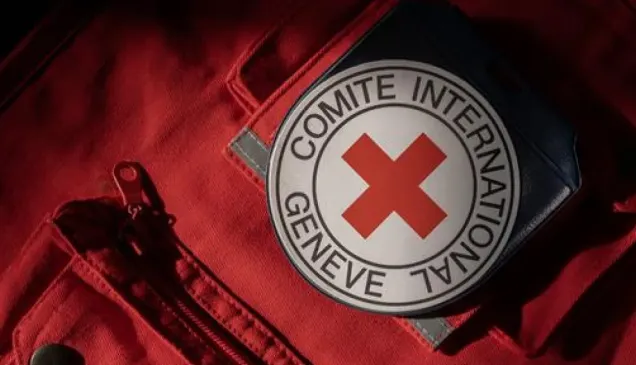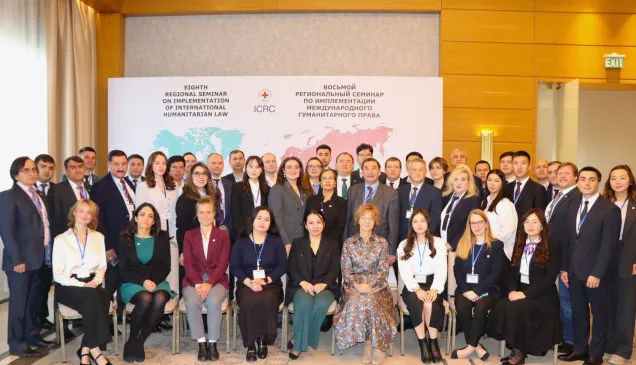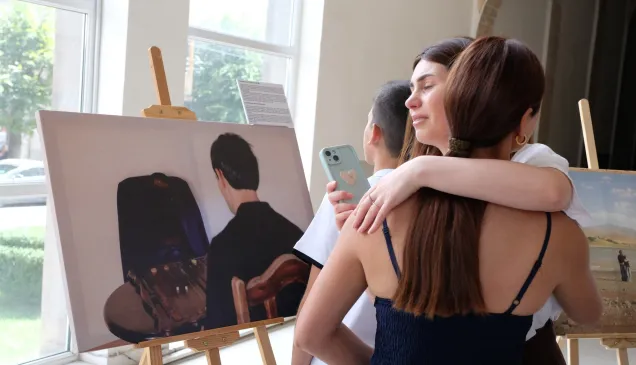No effort is being spared as teams work tirelessly across city centre locations and mountain villages, searching for signs of life and anyone who may need help.
A small number of people remain in their homes, either by choice or because they were unable to leave by themselves. Some receive medical help or food and water. Others request assistance in contacting loved ones or securing transport to leave.
Karabakh - On the ground with the ICRC one month on
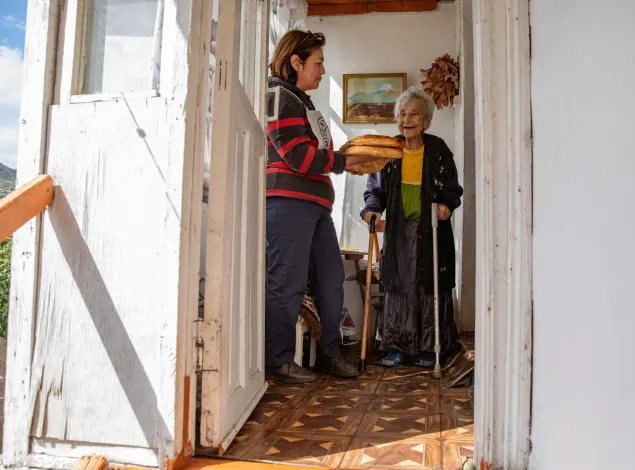
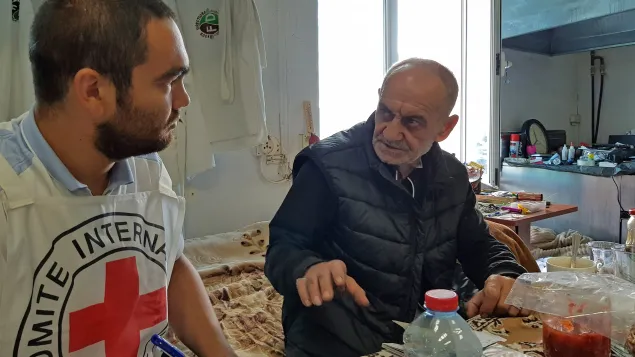
Kamo Hayrapetyan is currently living in an empty shopping centre and is being assisted by the ICRC. “They come to visit us, checking how we are doing and even brought humanitarian aid in boxes. There are many things inside, including butter and bread. They help how they can."
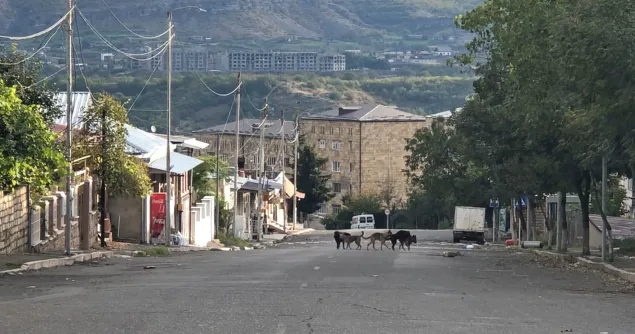
Streets are eerily quiet. Dogs search for food in residential areas.
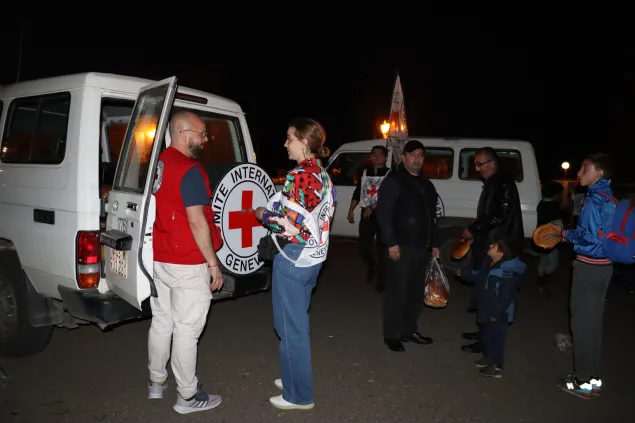
ICRC staff distribute bread and other essential items to people waiting for buses in the city on 29 September. Many thousands of people left their homes in just a few days.
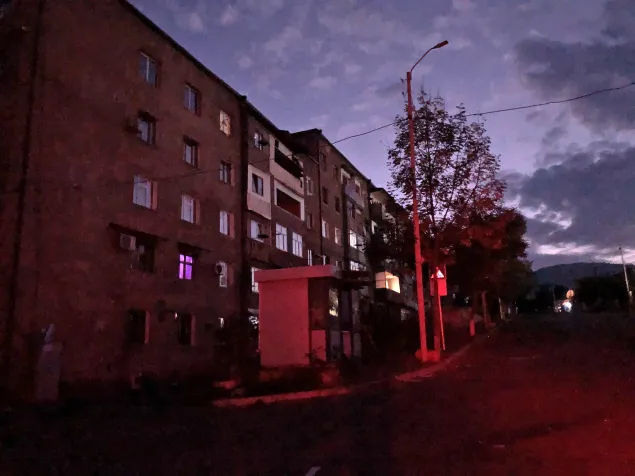
The lights may be on, but there is no-one home: When people left their homes, power supplies had been cut in many residential areas. When power was restored, lights came back on in empty apartments.
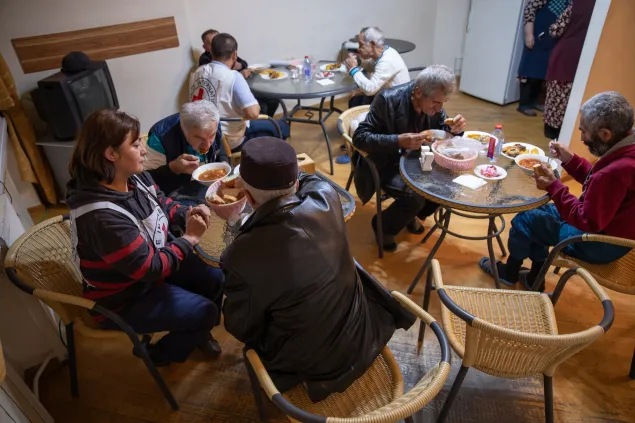
ICRC staff visit a small local shelter which is now providing a bed, meals and other support to vulnerable people who stayed in the city.
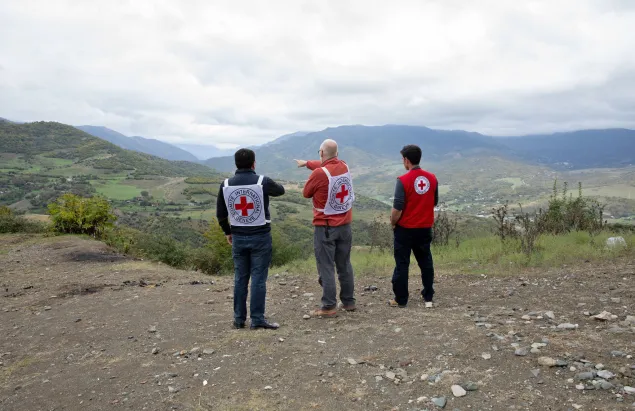
Planning the next stage of a visit to remote communities, always aware of the potential dangers of mines and unexploded ordnance.
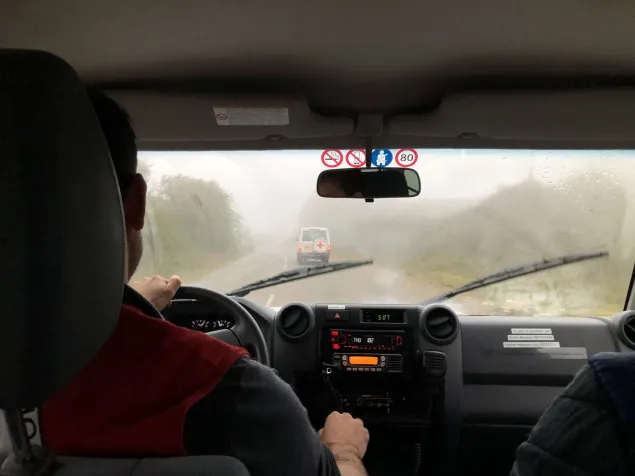
Visits to remote communities can take many hours. “We’ve got winter coming”, said Chris Poole, an ICRC weapons contamination expert. “Time is of the essence. We need to get into these areas, with the necessary expertise, with the necessary materials.”
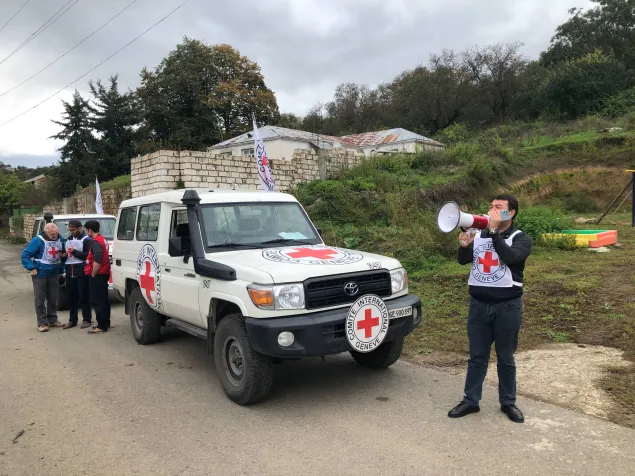
Calling out to vulnerable people; a colleague uses a loudspeaker with messages in Russian and Armenian languages, to alert people to the presence of our protection team.
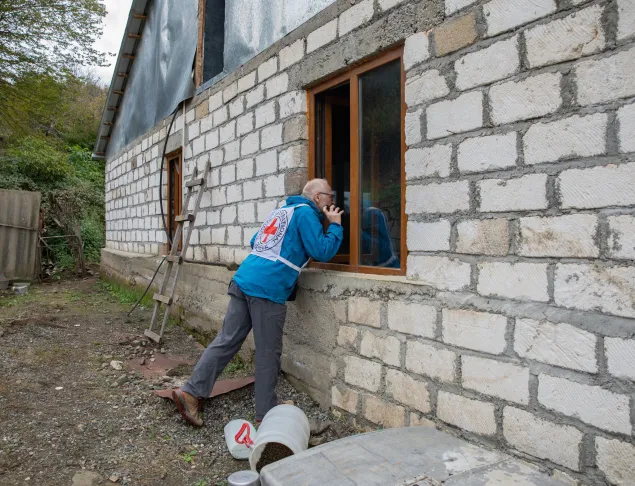
A team had been told locally of an elderly man living alone in a remote hamlet. On this occasion, no-one is found.
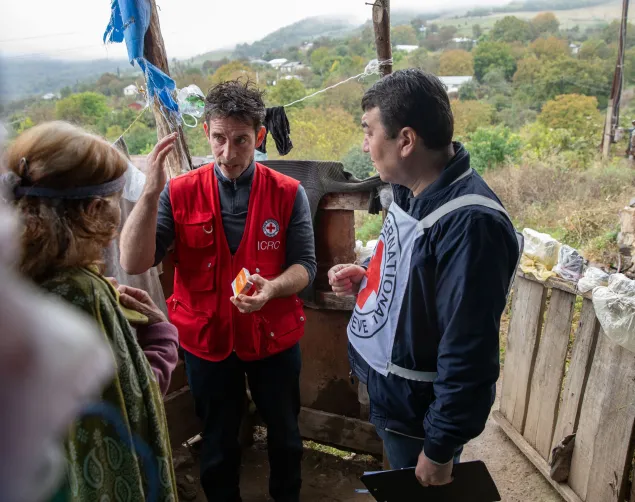
An ICRC medic provides medicine to a woman who wishes to stay in her home.
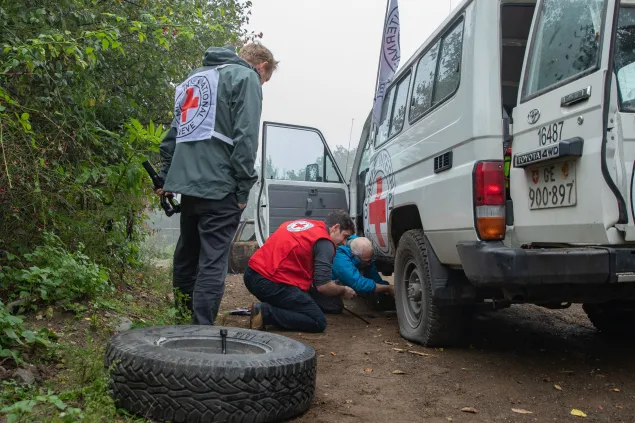
After a long day searching in mountain villages, an ICRC vehicle has a puncture which needs repairing urgently, before nightfall.
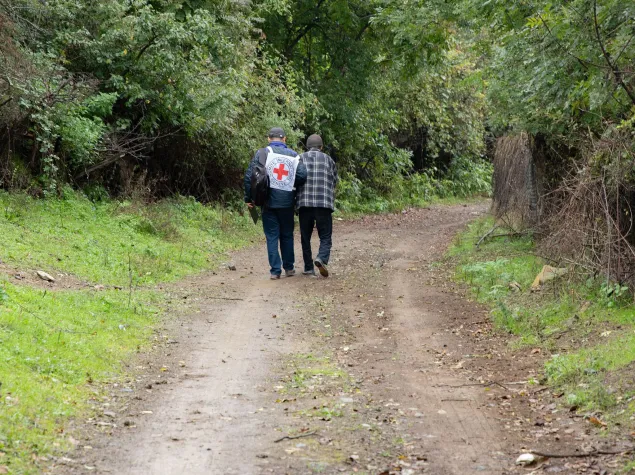
Providing a helping hand. An ICRC delegate escorts a man back to his home, to further assess any needs or support that could be provided.
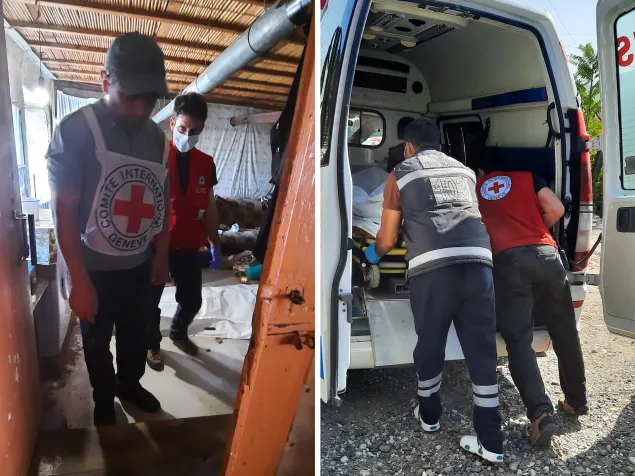
Sadly the body of an elderly lady was found by the ICRC team which was looking for her. It’s believed she died from natural causes. The dignified treatment of those who have died remains a key priority, with staff working closely with loved ones to provide support. The ICRC was able to transport the remains of 220 people who died, both due to the recent escalation but also during the fuel depot blast which occurred on 25 September.
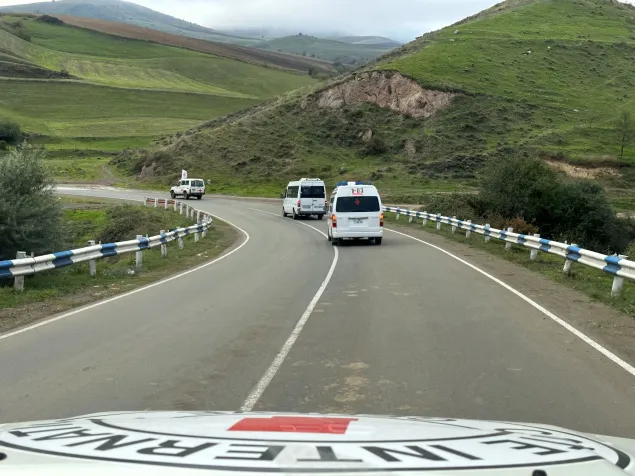
The ICRC was able to help evacuate over 200 wounded and sick patients, including people injured in the fuel depot explosion on 25 September. Hospitals, which were already facing severe supply and staff shortages, struggled to manage the influx of patients.
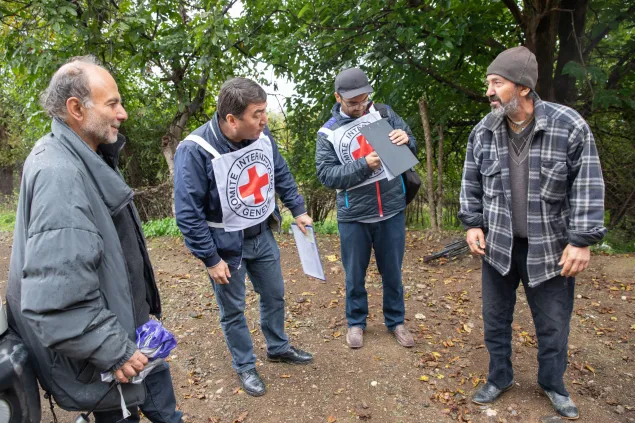
An ICRC team was approached by a man, Aharon Ghazaryan (left) who lives with his 92-year-old father in a very remote mountain community. He was not aware that so many people had fled the region as he has been without electricity for several weeks, with no access to TV or radio. "Thank God that you came, we saw you, and got information about what is going on right now.”
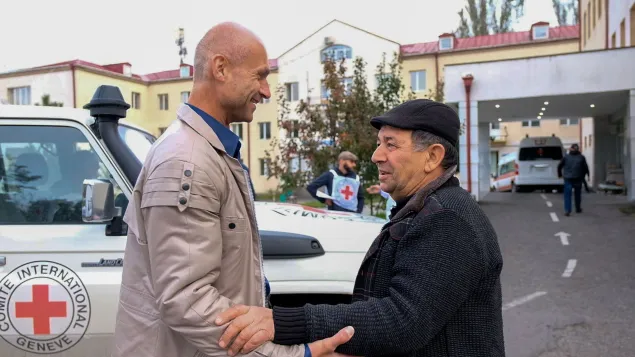
Back together again. Friends reunited in Goris, Armenia after another ICRC-facilitated evacuation.
Families have also been separated and need support to find and keep in touch with one another. We have received over 2,500 individual visits and phone calls at our offices in the region from families searching for their loved ones and willing to get information.

